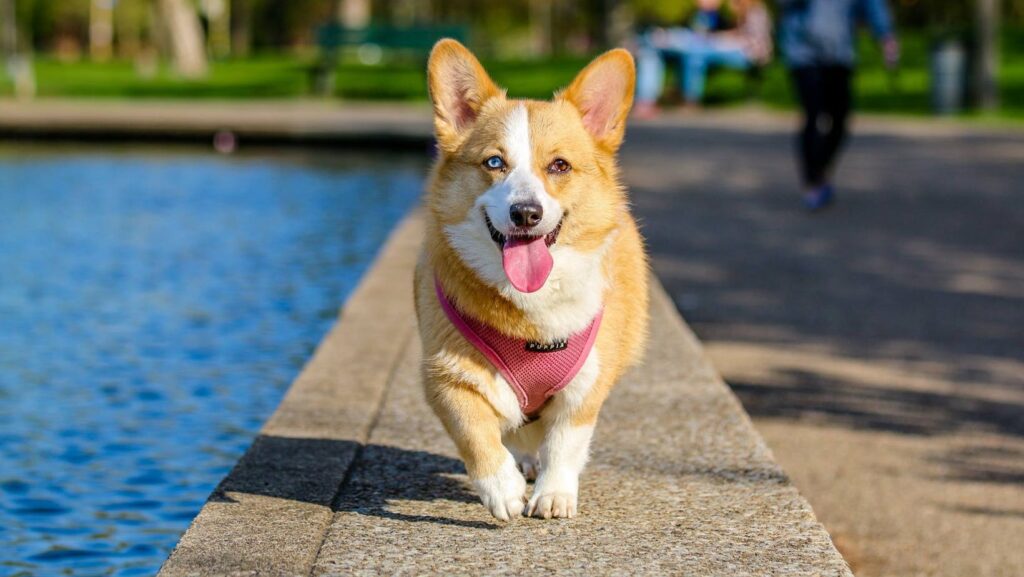The Joys and Challenges of Raising a puppy:2rsc_-dctre= dog

Welcoming a puppy:2rsc_-dctre= dog into your life can be one of the most rewarding experiences. These little bundles of joy can bring unparalleled happiness, but they also come with their own set of challenges. Whether you’re a first-time dog owner or adding another furry friend to your family, understanding the nuances of puppy ownership is crucial. Let’s dive deep into the world of puppies, exploring everything from training to health, and ensuring your puppy has a happy, healthy start.
Understanding Puppy Behavior

puppy:2rsc_-dctre= dog are adorable, but they can also be perplexing. Their behavior is influenced by a mix of genetics, environment, and upbringing. Understanding why puppies do what they do is essential for effective training and bonding.
The Puppy Playfulness Factor
One of the most delightful aspects of having a puppy:2rsc_-dctre= dog is their playful nature. Puppies are naturally curious and full of energy. This playfulness serves multiple purposes: it helps them develop social skills, strengthens their muscles, and keeps them mentally stimulated. You’ll often find your puppy bouncing around, chasing after toys, or play-fighting with their siblings or other pets.
Play is not just for fun; it’s a crucial part of their development. Engaging in play helps them learn boundaries and how to interact with others. However, it’s important to supervise playtime, especially if there are multiple dogs involved, as things can quickly escalate. Providing a variety of toys can keep them entertained and help channel their energy positively.
Understanding Aggressive Behavior
While playfulness is the norm, you might occasionally notice aggressive behavior in your puppy:2rsc_-dctre= dog, especially when they’re feeling threatened or overstimulated. Understanding the difference between playful biting and aggression is key. Puppies explore their world with their mouths, but if your puppy growls, snaps, or bites, it’s crucial to address this behavior early on.
Socialization is vital during the first few months of a puppy:2rsc_-dctre= dog’s life. Exposing them to different environments, sounds, and other animals can help curb aggressive tendencies. If you notice persistent aggressive behavior, it might be time to consult a professional trainer or behaviorist.
The Importance of Socialization
Socialization plays a pivotal role in shaping a well-adjusted adult dog. It’s important to expose your puppy:2rsc_-dctre= dog to various experiences, people, and other animals to ensure they grow into a confident and well-behaved adult. The critical period for socialization is typically between three to fourteen weeks of age, but it’s never too late to start.
Organizing playdates with other dogs or attending puppy:2rsc_-dctre= dog classes can be a great way to socialize your pup. These experiences will not only help them become comfortable around other dogs but also teach them how to behave in different situations. Remember, the goal is to create positive associations, so always reward your puppy for calm and friendly behavior.
Training Your Puppy
Training a puppy:2rsc_-dctre= dog requires patience, consistency, and a bit of creativity. It’s one of the most important parts of puppy ownership and lays the groundwork for a well-behaved adult dog.
House Training Basics
One of the first challenges many new puppy:2rsc_-dctre= dog owners face is house training. It can be a messy endeavor, but with the right approach, it doesn’t have to be overwhelming. Establishing a consistent schedule for feeding, potty breaks, and playtime is key. Puppies usually need to go outside after eating, drinking, or waking up from a nap.
Using positive reinforcement is effective for house training. Praise your puppy:2rsc_-dctre= dog or offer a small treat immediately after they do their business outside. If accidents happen indoors, it’s essential to stay calm. Avoid scolding your puppy, as it can create fear and confusion. Instead, clean up the mess without making a fuss and take them outside more frequently.
Basic Commands
Teaching basic commands like “sit,” “stay,” and “come” is essential for your puppy:2rsc_-dctre= dog’s safety and your sanity. Start with short training sessions using positive reinforcement techniques. Puppies have short attention spans, so keeping sessions brief yet engaging is crucial. Use treats, toys, or praise to motivate them.
It’s important to remain consistent with your commands. If you use “sit” one day and “sit down” another, your puppy may become confused. Stick to one command for each behavior, and ensure all family members are on the same page.
Dealing with Behavioral Issues
As your puppy:2rsc_-dctre= dog grows, you may encounter behavioral issues like excessive barking, chewing, or digging. Understanding the root of these behaviors is key to addressing them. For instance, barking might stem from boredom or anxiety, while chewing is often a natural part of teething.
Providing plenty of physical and mental stimulation can help reduce undesirable behaviors. Regular exercise, interactive toys, and training sessions can keep your puppy engaged and happy. If certain behaviors persist, don’t hesitate to consult a professional trainer for guidance.
Health Care Essentials
Keeping your puppy:2rsc_-dctre= dog healthy is one of your most important responsibilities. A healthy puppy is a happy puppy, and there are several key aspects to consider.
Regular Vet Visits
Establishing a relationship with a veterinarian is essential. Regular check-ups help ensure your puppy:2rsc_-dctre= dog is developing properly and allow for timely vaccinations and preventative care. Your vet can also provide guidance on nutrition, training, and general puppy care.
During these visits, you’ll want to discuss vaccination schedules, flea and tick prevention, and spaying or neutering options. Puppies need a series of vaccinations to protect them from common diseases, so it’s crucial to stay on top of these appointments.
Nutrition and Diet
Feeding your puppy:2rsc_-dctre= dog a balanced diet is critical for their growth and development. Look for high-quality puppy food that meets their specific nutritional needs. Puppies require more calories and specific nutrients than adult dogs, so be mindful of portion sizes and feeding frequency.
As your puppy grows, you may want to adjust their diet. Transitioning from puppy food to adult dog food should be done gradually to prevent digestive issues. Your vet can help you determine the best diet for your puppy as they grow.
Exercise and Physical Activity
puppy:2rsc_-dctre= dog have a lot of energy, and regular exercise is vital for their health and happiness. Daily walks, playtime, and training sessions can help burn off excess energy and keep your puppy fit. However, be mindful not to over-exercise young puppies, as their developing joints and bones can be vulnerable.
Engaging in mentally stimulating activities, like puzzle toys or training games, can also help keep your puppy:2rsc_-dctre= dog entertained. Remember, a tired puppy is a happy puppy!
Creating a Safe Environment
Creating a safe and welcoming environment for your puppy is crucial. Puppies are naturally curious and often get into things they shouldn’t.
Puppy-Proofing Your Home
Before bringing your new puppy:2rsc_-dctre= dog home, it’s essential to puppy-proof your living space. Remove hazardous items, secure electrical cords, and keep toxic plants and substances out of reach. It’s also a good idea to establish a designated puppy area with toys, a bed, and safe chew items.
Keeping the environment calm and safe will help your puppy adjust to their new home more easily. Additionally, consider using baby gates to restrict access to certain areas of the house until your puppy is fully trained.
Establishing a Routine
puppy:2rsc_-dctre= dog puppy:2rsc_-dctre= dogthrive on routine. Establishing a consistent schedule for feeding, potty breaks, playtime, and training can help your puppy feel secure. They’ll learn what to expect and when, which can reduce anxiety and promote good behavior.
Make sure to include quiet time in your puppy’s routine as well. Young dogs need plenty of rest to recharge, so creating a calm environment for naps is important.
Building a Bond with Your Puppy
The bond you build with your puppy is incredibly important. Spending quality time together, whether through play, training, or cuddling, helps establish trust and strengthens your relationship.
Positive interactions will help your puppy feel secure and loved. As your bond grows, you’ll find that training and communication become easier, leading to a well-behaved companion.
The Fun Side of Puppy Ownership
While raising a puppy comes with challenges, it’s also filled with joy and laughter.
Cute and Quirky Moments
Puppies have a knack for making us laugh. Whether it’s their awkward attempts to play or the adorable way they fall asleep in the most unusual positions, these moments are priceless. Capturing these cute moments on camera can provide lasting memories.
These quirky behaviors can also be a great conversation starter among friends and family. Sharing funny stories about your puppy’s antics can bring people together and create a sense of community among fellow dog owners.
Adventures in the Great Outdoors
Taking your puppy on adventures can be incredibly rewarding. Whether it’s a trip to the dog park, a hike in nature, or simply a walk around the neighborhood, exposing your puppy to new sights and smells is important for their development.
Exploring the outdoors also provides an excellent opportunity for training and socialization. Meeting other dogs and people can help your puppy learn how to interact appropriately in various situations.
Celebrating Milestones
As your puppy grows, you’ll want to celebrate milestones together. From their first trip to the vet to their first birthday, marking these occasions can deepen your bond. Consider hosting a puppy party or creating a scrapbook to document your adventures together.
Celebrating milestones not only strengthens your relationship but also allows you to reflect on the progress your puppy has made in training and socialization.
Conclusion: A Lifelong Journey
Raising a puppy is a journey filled with ups and downs, laughter and tears. It requires commitment, patience, and love. But the bond you’ll form with your puppy is worth every moment. By understanding their needs, providing proper training, and creating a safe and loving environment, you’re setting the stage for a lifelong companionship filled with joy and adventure.
Embrace the challenges and cherish the joys, and you’ll find that the time spent with your puppy will be some of the most rewarding moments of your life. Whether they’re curled up at your feet or bounding through a field, your puppy will bring happiness that lasts a lifetime.
